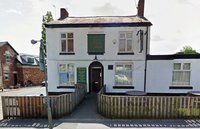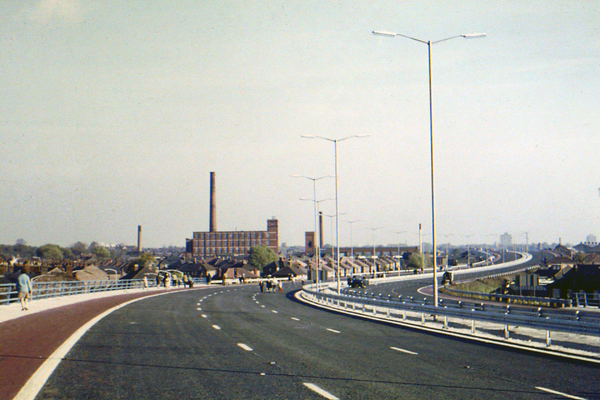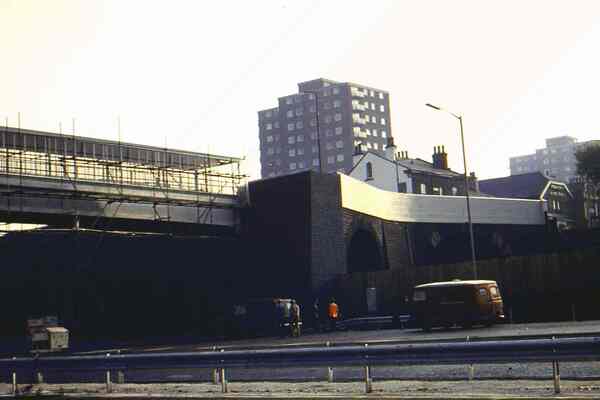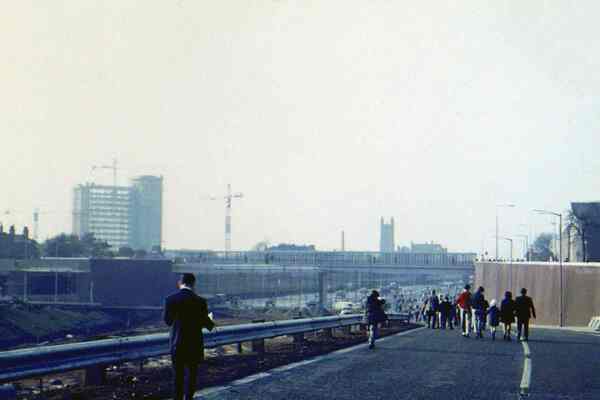
Ada fell foul of the Defence of the Realm Act, 1915 better known as DORA..
The DORA act included amongst its somewhat bizarre rules were that no-one was allowed to buy binoculars, no-one was allowed to give bread to horses, horses or chickens, no-one was allowed to buy brandy or whisky in a railway refreshment room, customers in pubs were not allowed to buy a round of drinks and public house opening times were also reduced to 12.00 noon to 2.30 pm and 6.30 to 9.30 pm. before the law was changed, public houses could open from 5 am in the morning to 12.30 pm at night.
The price and gravity of beer was heavily regulated by this act as the Prime Minister didn't want you idling away your hours in the pub when you could be either fighting the Hun or making munitions to kill the Hun.
Ada had a surprise visit from the boys in blue led by D.S. Bentham and Inspector Swaites two men known for their hard line, no nonsense style of policing and lack of humour.
They called in at 9pm on July 13th and going into the vault found that the door was off its hinges and a table was blocking the doorway, and not surprisingly, no customers.
In the lobby were six people drinking, with the parlour full of people and two old dears sat in the kitchen drinking half pints of bitter.
No doubt shocked at this scene of debauchery Sgt Bentham summoned Ada over and demanded to to know what prices she was selling her beer at.
She told him, eight-pence a pint in the lobby, and parlour but in the vault four-pence a pint.
A search of the pub cellar produced damning evidence, two barrels of beer which piped up to the bar and marked four-pence a pint.
Ada was charged with selling four-penny ale at eight-pence a pint and failing to exhibit price lists stating price and gravity of the ale.
She was represented in court by Mr F.W. Watson who seems quite a humorous chap, when asked by Inspector Swaites if he knew the gravity of the beer on sale in the pub he replied,
"No, but I know the gravity of this case" Touche!
Ada told the court that the vault door came off its hinges on Friday evening and the room could not but used until the door was repaired on the Monday morning, but if customers wanted a four-penny pint she could serve them through the lobby window and charge four-pence a pint.
The case descended into farce when Mr F. Watson produced several witnesses who stated that they were always charged four-pence a pint and on the night in question of the police visit.
Mr Sidney Parker told the court that he only had to rattle the latch on the broken door and he would be served at four-pence a pint, not to be outdone, Mr Ernest Cooper stood up and said he had also tried the vault door but couldn't gain entry but was charged four-pence a pint stood in the lobby, adding for good measure that he had two pints of bitter in the parlour for five-pence a pint and was "marvellous stuff".
Confused? the Chairman Alderman T. Grindle certainly was, stating that "It appears to me that it is quite a scientific thing to get to get drunk now" which brought laughter from the cheap seats.
He then enquired ,"Are the other witnesses you have of the same kind, Mr Watson?" he was assured that they were.
He then asked if there was any eight-pence a pint witnesses in the courtroom. not a soul moved, again this comment brought comment from the public gallery.
Sadly that's were the laughter stopped, poor Ada was fined £2-2 shillings for the first offence and £1-1 shilling on the second offence.
Seems a tad harsh to me just surprised that Ada told the police she was charging eight pence a pint though, a moral there somewhere I suppose!
On a final note did you know that the original name of the Ship Canal pub was The Running Horses until 1865 when the Manchester Ship Canal Act was passed?
The name Running Horses was to remember when Eccles could boast of having a race-course, which closed that year, and the land was later obtained by Messrs Engels and Ermen who built the Togo Mill.
The name Togo is a strange name and I did a bit of research which showed that Togo was actually Admiral Togo Heihchiro who sank most of the Russian fleet at the Battle of Tsushima in May 1905 when the two countries were at war, possibly two fingers to the Russian Royal family by Engels who had no love for them.
Value for money for me when it comes to obscure bits of local knowledge.







Recommended Comments
There are no comments to display.
Create an account or sign in to comment
You need to be a member in order to leave a comment
Create an account
Sign up for a new account in our community. It's easy!
Register a new accountSign in
Already have an account? Sign in here.
Sign In Now